How the English “Tractor Boys” celebrated our hero from USA ’94
When you set out to conquer peaks, it’s clear that there can be no limit—and there shouldn’t be one—for you. No matter where you come from or where you’re headed. Yes, your path will inevitably wind through countless obstacles, but in the end, it will take you to the place you want to be. In fact, the seriousness of obstacles is a relative concept, highly individual, and entirely dependent on the person facing them. It’s no coincidence that we often admire—and secretly envy—children for their purity of spirit and unburdened minds, which allow them to see “beyond the horizon” and dream big. Some long, as kids, to become astronauts, others to step into the role of Batman, others of Superman, and so on, and so on…
Personally, when I, as a child, also dreamed boldly and on a grand scale—only in my case to become a great footballer—it was the mid-90s. And the 90s, many may not agree, but they were a “different time,” far more distinct and perhaps more genuine than today. In every aspect. However, we won’t provide a full retrospective of the era, and will only touch on two topics—music and football. The last decade of the previous century was a time when both the music and football industries had not yet become so ugly and commercialized, and were still capable of producing a product labeled “evergreen.” Or, more simply, one that is remembered for years and passed down through generations. Even today, if we think about it, retro parties fill nightclubs to capacity, and every summer music promoters organize grand events under slogans like “I Love the 90s,” “Back to the 90s,” and so on.
The situation in football wasn’t all that different either. Some of the biggest stars, who completely and forever changed the face of the greatest game, shone at full force precisely during this period. Yes, no one can deny that today fashion is dictated by Cristiano and Leo, Neymar and Mbappé, Lewandowski and Haaland, who break record after record and etch their names in golden letters in world history. But long before them, millions marveled at the talent, finesse, and romance emanating from Baggio, Ronaldo, Šuker, Bergkamp, Zidane, Batistuta, Del Piero, and many, many others. And while, from a football perspective, this period is largely associated with these names, from a musical perspective, one melody continues to sound just as fresh in the mind of anyone who has encountered it. A retro track from the 90s, singing about exactly what we mentioned at the beginning—how one should never put limits on oneself and how one must fight to the end to claim their piece of life’s happy pie…
No, there are no limits, we will reach the sky!
No, there are no limits, we will not give up!
We do what we want, and we do it proudly…
In 1992, at the time when 2 Unlimited’s debut song for the following year, 1993, “No Limit,” was still in the studio recording and production phase, a young Bulgarian, jokingly setting out from nothing to seek his fortune on the football pitch, had already fully embraced and put into practice the ideas that the Dutch duo would later embed in the lyrics of their future global mega-hit. At the peak of his powers and career, he found a true and steady path through the turbulent waters of the English Channel and enjoyed the privilege of becoming the first Bulgarian to break into the English Premier League.
Born in General Toshevo, Dobrich Province, Boncho Genchev embraced the “No Limit” formula early in life and boldly carved his path in the realm of football. Leaving for Lovech at a young age, near the Covered Bridge, he made his way from the youth teams to professional football, making his debut in 1982 with Osam (Lovech). Just a year later, he joined Lokomotiv (Gorna Oryahovitsa), where he began to hint seriously at his potential. His strong performances with the “railwaymen” drew the attention of neighboring Veliko Tarnovo, and in 1987 the attacking midfielder found himself at Ivaylo Stadium. At Etar, under the watchful and strict “general” eye of Georgi Vasilev and alongside some of the greatest names in Bulgarian football history—Krasimir Balakov, Trifon Ivanov, Iliyan Kiryakov, Tsanko Tsvetanov, and others—Boncho became Bulgarian champion in 1991. A year that still brings smiles to faces and ignites the flame in the hearts of all those connected, in one way or another, with the “violet” idea.
Once having become part of what was, until recently, an impossible and unthinkable miracle for the Veliko Tarnovo team, Genchev knew that obstacles might exist, but limits did not. And so, after a brief stint at Sporting (Lisbon), alongside two of his national team teammates—Ivaylo Yordanov and Krasimir Balakov—the footballer from the small northeastern town found himself on the Island. And not at some lower-league club, but at a former English champion, FA Cup and UEFA Cup winner – Ipswich Town.
At Portman Road, unlike at José Alvalade, the cheerful and ever-smiling Bulgarian was fortunate to quickly “hit the ground running” and even faster become a fan favorite among the “Tractor Boys.” Though his goals against Manchester City, Arsenal, Tottenham, and Bolton could be counted on one hand, along with his hat-trick against Grimsby Town in the FA Cup, they were more than enough to win the hearts of the supporters. So much so that, at one point, they “stole” and adapted a recently famous song, which had become the best-selling track of 1993, to express their joy that the future “hero from USA ’94” was now among their ranks…
“Boncho… Boncho, Boncho… Boncho, Boncho… Boncho, Boncho Genchev…”*
Some of you may have already guessed that this is the very same song whose lyrics we mentioned at the beginning; the very same one that, in 1993, just a few months after Boncho Genchev joined Ipswich Town, became the biggest hit in Europe and sold over 2.8 million copies worldwide.
“It was very interesting and fun, because I literally appeared out of nowhere at Ipswich. It was as if I had just fallen there. And since, luckily for me, I got off to a good start in the first matches, and at that time ‘No Limit’ was a global hit, the fans used it to chant my name. The fact is, I have unique memories from my time at Portman Road. I scored against City, Tottenham, Arsenal, and Bolton, had a hat-trick against Grimsby in the FA Cup, and assisted in one of the goals in the win over Manchester United. Truly incredible emotions,” recalls the former footballer with a smile – the one who converted the first penalty in the historic Round of 16 against Mexico and who amassed a total of 84 appearances and 15 goals in all competitions for the “Tractor Boys.”
Today Boncho Genchev is far from Ipswich, far from England, back in his homeland. Many other, much bigger footballers have passed through Portman Road and left a far more lasting mark than he did. Yet even now, more than 25 years after parting ways with the “Blues” and his subsequent transfer to Luton Town, if you talk to older fans or dig through Ipswich forums, you will still find “Tractor Boys” from that “golden” era—the mid-90s—who remember Guentchev, as it was written on his shirt, and the song dedicated to him…
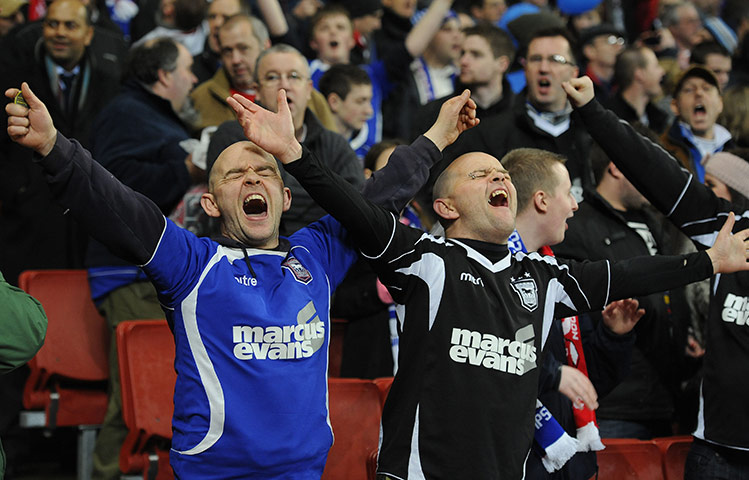
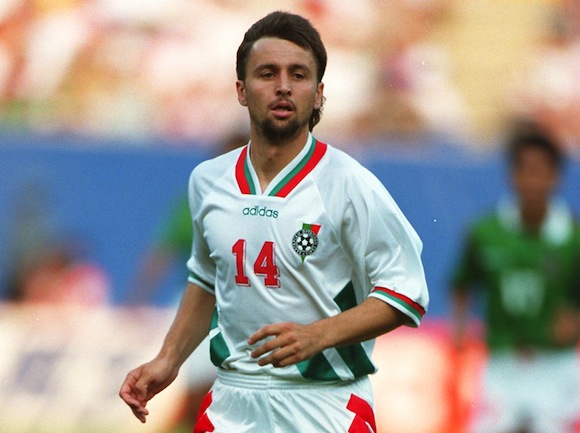
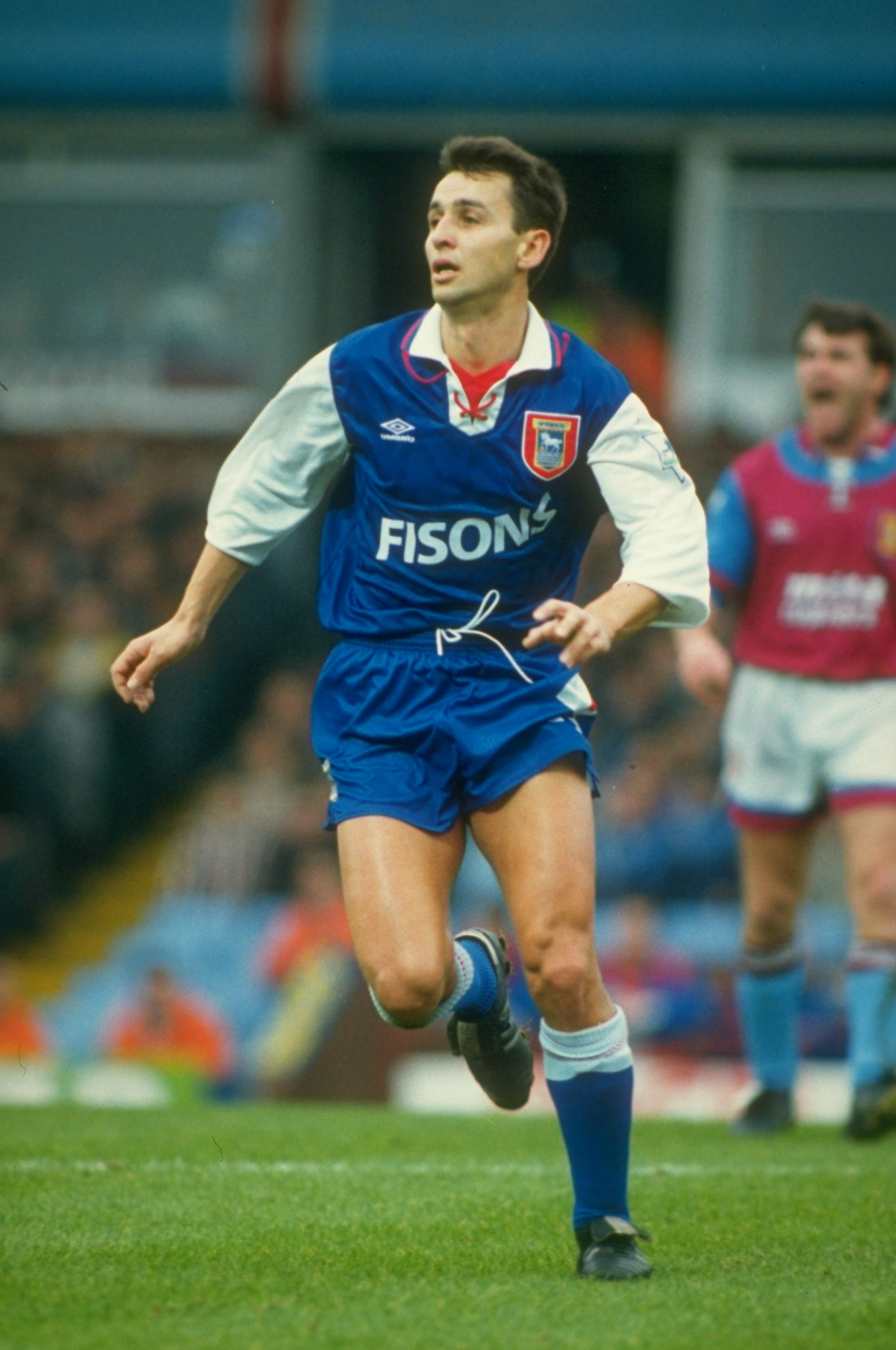
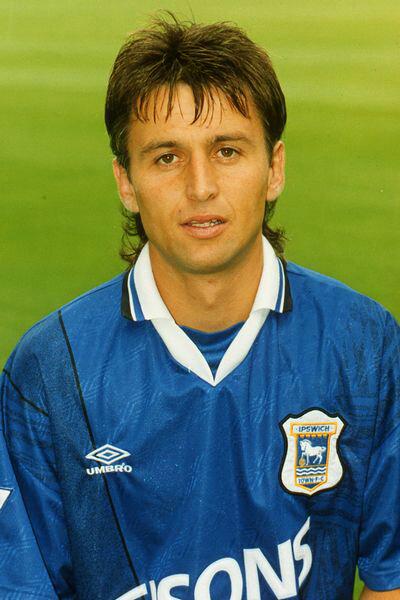
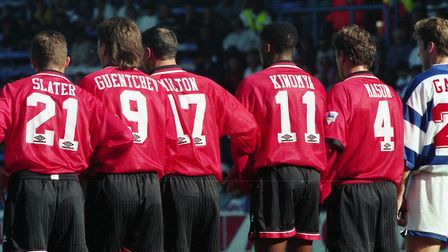
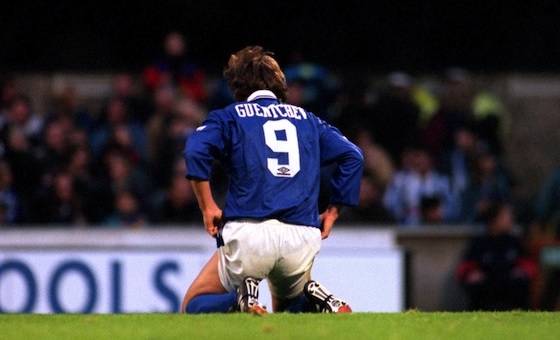
When you set out to conquer peaks, it’s clear that there can be no limit—and there shouldn’t be one—for you. No matter where you come from or where you’re headed. Yes, your path will inevitably wind through countless obstacles, but in the end, it will take you to the place you want to be. In fact, the seriousness of obstacles is a relative concept, highly individual, and entirely dependent on the person facing them. It’s no coincidence that we often admire—and secretly envy—children for their purity of spirit and unburdened minds, which allow them to see “beyond the horizon” and dream big. Some long, as kids, to become astronauts, others to step into the role of Batman, others of Superman, and so on, and so on…

Personally, when I, as a child, also dreamed boldly and on a grand scale—only in my case to become a great footballer—it was the mid-90s. And the 90s, many may not agree, but they were a “different time,” far more distinct and perhaps more genuine than today. In every aspect. However, we won’t provide a full retrospective of the era, and will only touch on two topics—music and football. The last decade of the previous century was a time when both the music and football industries had not yet become so ugly and commercialized, and were still capable of producing a product labeled “evergreen.” Or, more simply, one that is remembered for years and passed down through generations. Even today, if we think about it, retro parties fill nightclubs to capacity, and every summer music promoters organize grand events under slogans like “I Love the 90s,” “Back to the 90s,” and so on.

The situation in football wasn’t all that different either. Some of the biggest stars, who completely and forever changed the face of the greatest game, shone at full force precisely during this period. Yes, no one can deny that today fashion is dictated by Cristiano and Leo, Neymar and Mbappé, Lewandowski and Haaland, who break record after record and etch their names in golden letters in world history. But long before them, millions marveled at the talent, finesse, and romance emanating from Baggio, Ronaldo, Šuker, Bergkamp, Zidane, Batistuta, Del Piero, and many, many others. And while, from a football perspective, this period is largely associated with these names, from a musical perspective, one melody continues to sound just as fresh in the mind of anyone who has encountered it. A retro track from the 90s, singing about exactly what we mentioned at the beginning—how one should never put limits on oneself and how one must fight to the end to claim their piece of life’s happy pie…
No, there are no limits, we will reach the sky!
No, there are no limits, we will not give up!
We do what we want, and we do it proudly…

In 1992, at the time when 2 Unlimited’s debut song for the following year, 1993, “No Limit,” was still in the studio recording and production phase, a young Bulgarian, jokingly setting out from nothing to seek his fortune on the football pitch, had already fully embraced and put into practice the ideas that the Dutch duo would later embed in the lyrics of their future global mega-hit. At the peak of his powers and career, he found a true and steady path through the turbulent waters of the English Channel and enjoyed the privilege of becoming the first Bulgarian to break into the English Premier League.

Born in General Toshevo, Dobrich Province, Boncho Genchev embraced the “No Limit” formula early in life and boldly carved his path in the realm of football. Leaving for Lovech at a young age, near the Covered Bridge, he made his way from the youth teams to professional football, making his debut in 1982 with Osam (Lovech). Just a year later, he joined Lokomotiv (Gorna Oryahovitsa), where he began to hint seriously at his potential. His strong performances with the “railwaymen” drew the attention of neighboring Veliko Tarnovo, and in 1987 the attacking midfielder found himself at Ivaylo Stadium. At Etar, under the watchful and strict “general” eye of Georgi Vasilev and alongside some of the greatest names in Bulgarian football history—Krasimir Balakov, Trifon Ivanov, Iliyan Kiryakov, Tsanko Tsvetanov, and others—Boncho became Bulgarian champion in 1991. A year that still brings smiles to faces and ignites the flame in the hearts of all those connected, in one way or another, with the “violet” idea.

Once having become part of what was, until recently, an impossible and unthinkable miracle for the Veliko Tarnovo team, Genchev knew that obstacles might exist, but limits did not. And so, after a brief stint at Sporting (Lisbon), alongside two of his national team teammates—Ivaylo Yordanov and Krasimir Balakov—the footballer from the small northeastern town found himself on the Island. And not at some lower-league club, but at a former English champion, FA Cup and UEFA Cup winner – Ipswich Town.
At Portman Road, unlike at José Alvalade, the cheerful and ever-smiling Bulgarian was fortunate to quickly “hit the ground running” and even faster become a fan favorite among the “Tractor Boys.” Though his goals against Manchester City, Arsenal, Tottenham, and Bolton could be counted on one hand, along with his hat-trick against Grimsby Town in the FA Cup, they were more than enough to win the hearts of the supporters. So much so that, at one point, they “stole” and adapted a recently famous song, which had become the best-selling track of 1993, to express their joy that the future “hero from USA ’94” was now among their ranks…
“Boncho… Boncho, Boncho… Boncho, Boncho… Boncho, Boncho Genchev…”*
Some of you may have already guessed that this is the very same song whose lyrics we mentioned at the beginning; the very same one that, in 1993, just a few months after Boncho Genchev joined Ipswich Town, became the biggest hit in Europe and sold over 2.8 million copies worldwide.

“It was very interesting and fun, because I literally appeared out of nowhere at Ipswich. It was as if I had just fallen there. And since, luckily for me, I got off to a good start in the first matches, and at that time ‘No Limit’ was a global hit, the fans used it to chant my name. The fact is, I have unique memories from my time at Portman Road. I scored against City, Tottenham, Arsenal, and Bolton, had a hat-trick against Grimsby in the FA Cup, and assisted in one of the goals in the win over Manchester United. Truly incredible emotions,” recalls the former footballer with a smile – the one who converted the first penalty in the historic Round of 16 against Mexico and who amassed a total of 84 appearances and 15 goals in all competitions for the “Tractor Boys.”
Today Boncho Genchev is far from Ipswich, far from England, back in his homeland. Many other, much bigger footballers have passed through Portman Road and left a far more lasting mark than he did. Yet even now, more than 25 years after parting ways with the “Blues” and his subsequent transfer to Luton Town, if you talk to older fans or dig through Ipswich forums, you will still find “Tractor Boys” from that “golden” era—the mid-90s—who remember Guentchev, as it was written on his shirt, and the song dedicated to him…
